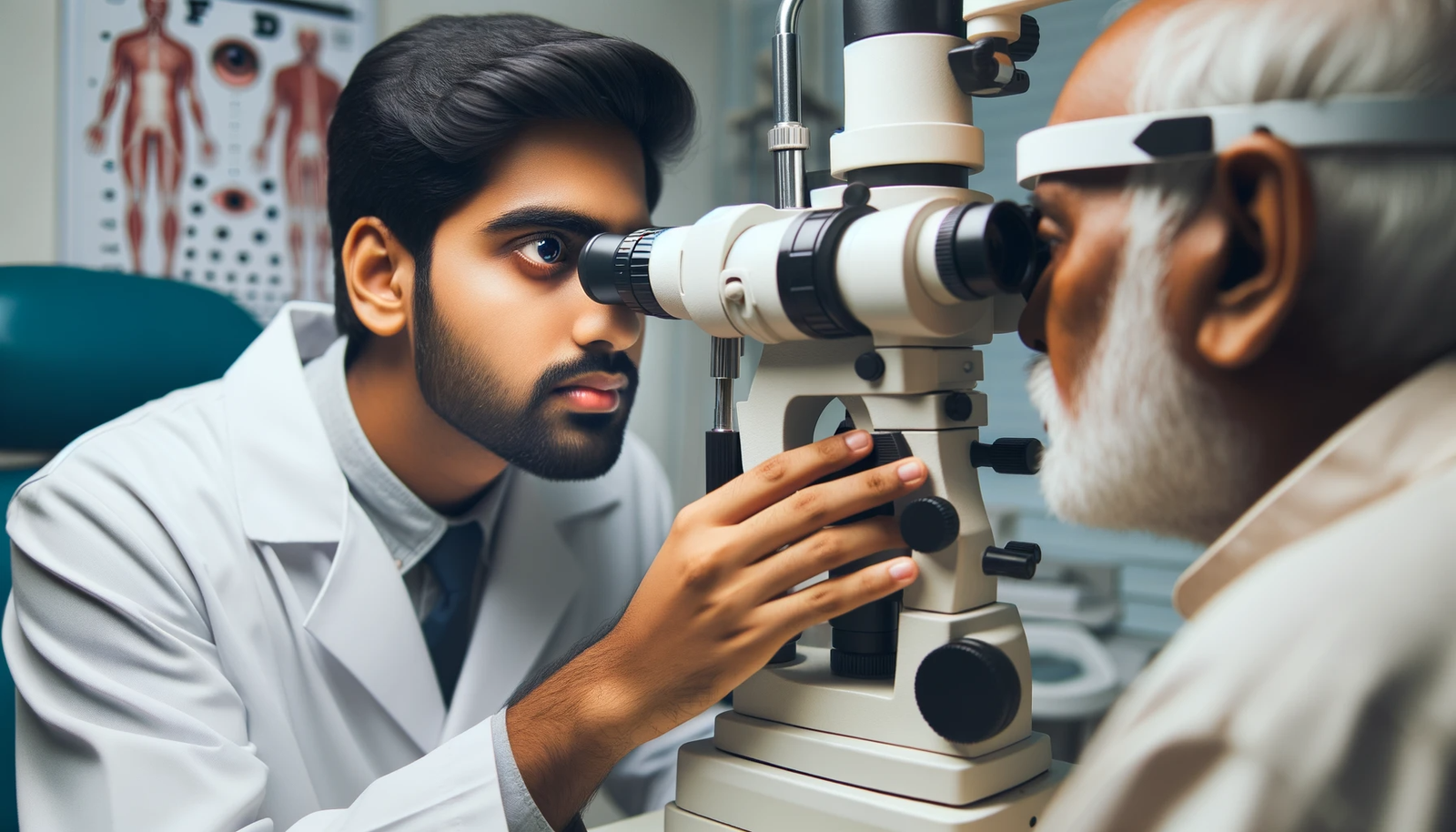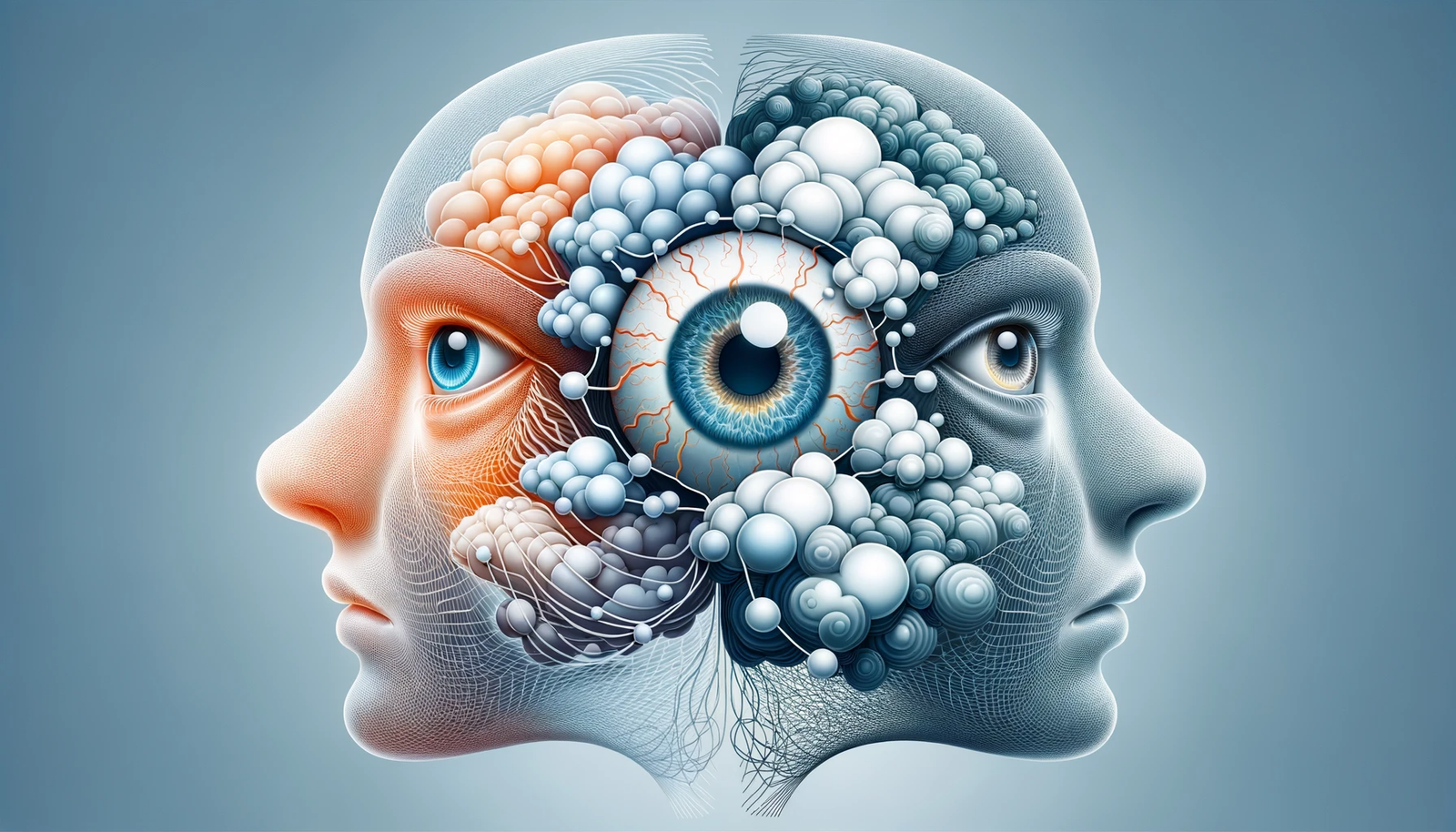Cataracts not only impair visual acuity but also exert a detrimental impact on an individual’s mental health and overall well-being. The development of cataracts, a disorder commonly observed in older individuals, can lead to a notable decline in one’s overall quality of life. The consequences are significantly broader in scope than mere impairment in reading and driving, encompassing the deprivation of diverse sensory encounters that contribute to the liveliness of one’s environment. These experiences encompass the phenomenon of color perception, the ability to recognize faces, and the capacity to derive satisfaction from even the most rudimentary sources of enjoyment.

The observed decrease in visual acuity possesses the capacity to elicit significant psychological repercussions, including the emergence of depressive symptoms or the onset of anxious emotions. The correlation between mental health illnesses and the management of cataracts remains insufficiently investigated, yet it is undeniably intertwined. Cataract surgery, a procedure that has gained prevalence due to recent advancements in the field of health, is a ray of optimism for individuals seeking treatment. This therapeutic intervention possesses the capacity to enhance an individual’s visual acuity, while simultaneously exerting a significant influence on their mental welfare.
Contents
- 1 A Comprehensive Examination of the Impact of Cataract Surgery on Mental Well-being
- 2 Continuing Our Inquiry: The Temporal Gap Between Distinct Surgical Interventions
- 3 A Study on the Correlation Between Emotional Distress and the Indication for Cataract Surgery
- 4 Expanding the Spectrum: Transcending the Boundaries of Individuality
A Comprehensive Examination of the Impact of Cataract Surgery on Mental Well-being
The combined impact of cataract surgery, which encompasses both enhanced visual acuity and rejuvenated cognitive capacities, is undeniably a significant outcome of the process. The restoration of one’s eyesight leads to a significant improvement in overall well-being and life satisfaction, as supported by empirical evidence. This positive outcome can be attributed to the notable psychological advantages associated with the recovery of vision. Consider the transition from a perceptually distorted and obstructed environment to one characterized by enhanced visual acuity and brightness. The abrupt change of circumstances has significant psychological implications, often resulting in enhanced mental health and a broader perspective on life for the individual.
The assertion is substantiated not alone by anecdotal accounts, but also by robust empirical evidence derived from scientific investigations. Multiple studies have demonstrated a reduced risk of developing dementia in those who have undergone cataract surgery. These conclusions have been corroborated through other study inquiries. The aforementioned correlation illuminates the robust association between an individual’s visual abilities and their cognitive capacities, thereby emphasizing the importance of cataract surgery beyond its primary goal of vision restoration, potentially resulting in an extension of an individual’s lifespan.

Nevertheless, the postoperative experience is not a uniformly homogeneous account solely defined by unmitigated joy. The rationale behind this is attributed to the potential complexities that may occur as a result of the aforementioned treatment. There has been a notable increase in the number of interactions in the field of mental health, mainly among women. This phenomena can be somewhat elucidated by the increased level of social interaction that typically ensues subsequent to the restoration of visual acuity.
Although this phenomena may seem counterintuitive, it can be somewhat elucidated by this component. There exists a potential correlation between the restoration of an individual’s capacity to interpret facial expressions, discern social cues, and autonomously navigate their surroundings, and an increased consciousness of their mental state. Consequently, this heightened awareness may lead to a greater propensity for actively pursuing mental health support.
Continuing Our Inquiry: The Temporal Gap Between Distinct Surgical Interventions
The temporal interval between successive cataract surgeries conducted on each eye is a crucial although occasionally disregarded factor that necessitates careful attention. Recent research has shed light on the correlation between the temporal sequencing of surgical procedures and subsequent mental health implications. The aforementioned studies were carried out by researchers hailing from the United Kingdom and the United States.
Empirical research suggests a positive correlation between an extended temporal interval between surgical procedures and a diminished impact on psychological well-being. This observation suggests the existence of a negative correlation between dosage and response in the context of surgical interventions.
According to a particular perspective, it is argued that if there is a notable discrepancy in visual acuity between the two eyes over a certain period of time, an individual may encounter feelings of discomfort and psychological distress. Consequently, the efficacy of certain advantages derived from the first surgical intervention would be diminished. This observation underscores the importance of doing a thorough evaluation of the temporal interval between surgical interventions as a critical factor in optimizing the outcomes for the patient’s psychological and visual health.
A Study on the Correlation Between Emotional Distress and the Indication for Cataract Surgery

While it is commonly asserted that cataract surgery yields a substantial enhancement in an individual’s mental well-being, the subjective nature of this outcome necessitates recognition of potential variations in personal experiences. There is a subset of individuals for whom the surgical surgery does not generate the projected improvement in visual acuity, and these patients are referred to as “failures.” The ramifications beyond the physical affliction experienced by individuals and encompass the psychological anguish endured by a significant portion of the population. Individuals may have an extended sense of despondency due to diminished expectations, potentially intensifying preexisting mental health disorders such as depression and anxiety.
Expanding the Spectrum: Transcending the Boundaries of Individuality
The impact of cataract surgery extends beyond the individual level and encompasses broader implications for society as a whole. Based on the publicly available data, there is a discernible pattern indicating a decrease in the number of individuals necessitating mental health interventions subsequent to undergoing surgical procedures.
The implementation of this particular approach serves to alleviate the economic burden on healthcare infrastructures, while simultaneously fostering a setting that is more favorable for promoting well-being among the neighboring community. Individuals who possess sound mental well-being are more inclined to actively contribute to the betterment of the societies in which they are situated. This phenomenon generates a virtuous cycle that adds to a comprehensive perception of well-being for all individuals engaged in the process.

Cataract surgery is a well-defined medical procedure that offers patients many advantages, such as the restoration of visual acuity and potential enhancements in emotional welfare. Consequently, the significance of this phenomenon extends beyond mere visual perception and exerts a substantial influence on an individual’s overall sense of well-being. There exists a pressing need for further investigation in order to delve into the intricate and diverse dynamics that are presently unfolding. In the interim, it is imperative to acknowledge that cataract surgery serves not just as a means to enhance visual acuity, but also as a procedure that significantly enhances an individual’s overall quality of life. This is a matter that necessitates recognition.


